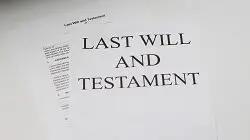For those who pass away in 2025, the federal estate tax exemption stands at $13.99 million per individual—or nearly $28 million for a married couple. This historically high exemption is a result of the 2017 Tax Cuts and Jobs Act (TCJA), which temporarily doubled the prior $5 million exemption (indexed for inflation).
But there’s a catch: the increased exemption is set to expire at the end of 2025. Without congressional action, the exemption will revert to approximately $7 million per person, adjusted for inflation. This change is already written into the law, so unless Congress intervenes, the reduction is inevitable.
How to Prepare for the Estate Tax Exemption Sunset in 2026
Estate planning strategies will vary based on a number of factors, including the types and total value of assets, family structure, access and control considerations, and intended beneficiaries. However, there are several proactive steps individuals can consider now to take advantage of the current exemption before it sunsets:
Because the federal exemption applies to both lifetime gifts and assets transferred at death, one effective strategy is to gift up to the full exemption amount before the end of 2025. Gifting $13.99 million in 2025 removes that amount from your taxable estate, and the IRS has confirmed it will not be “clawed back” later, even if the exemption is reduced.
These gifts can be made to irrevocable trusts specifically designed to protect assets and control how they are used by beneficiaries. Depending on the trust’s terms, beneficiaries may include children, grandchildren, charities, or even a spouse.
In addition to the lifetime exemption, individuals can gift up to $19,000 per recipient in 2025 without affecting their lifetime exemption. These annual exclusion gifts are a simple and effective way to gradually reduce the taxable estate over time. Making charitable gifts, whether made during life or at death through a will, trust, or beneficiary designation, can further reduce your taxable estate while also meeting your philanthropic goals.
Key Estate Tax Considerations for New York Residents
For New York residents, planning must address both federal and state estate taxes. Unlike Florida, which has no state estate tax, New York currently imposes estate tax on estates exceeding $7.16 million per person. Importantly, New York does not offer “portability,” meaning a surviving spouse cannot use the unused exemption of a deceased spouse.
To preserve the state exemption, planners often recommend a credit shelter trust (also called a bypass trust). This allows assets up to the exemption amount to be held outside the surviving spouse’s estate, thereby reducing the combined estate tax liability for the family.
Don’t Wait for 2026—Take Control of Your Estate Plan Today
Plan now! Even for estates that may not be taxable today, planning ahead can provide significant tax savings and peace of mind. For high-net-worth individuals, early planning is especially critical. While some strategies may require a “wait and see” approach, having a team in place—including a trusts and estates attorney, accountant, and financial advisor—ensures that you are ready to act quickly once the future of the federal exemption becomes clear.
By Britt Burner
Britt Burner, Esq. is a Partner at Burner Prudenti Law, P.C. focusing her practice areas on Estate Planning and Elder Law. Burner Prudenti Law, P.C. serves clients from New York City to the east end of Long Island with offices located in East Setauket, Westhampton Beach, Manhattan, and East Hampton.










